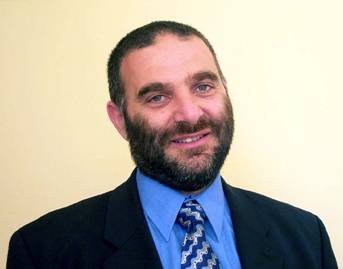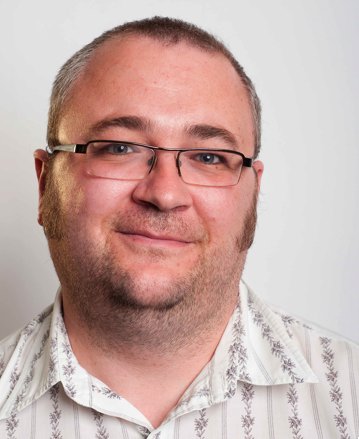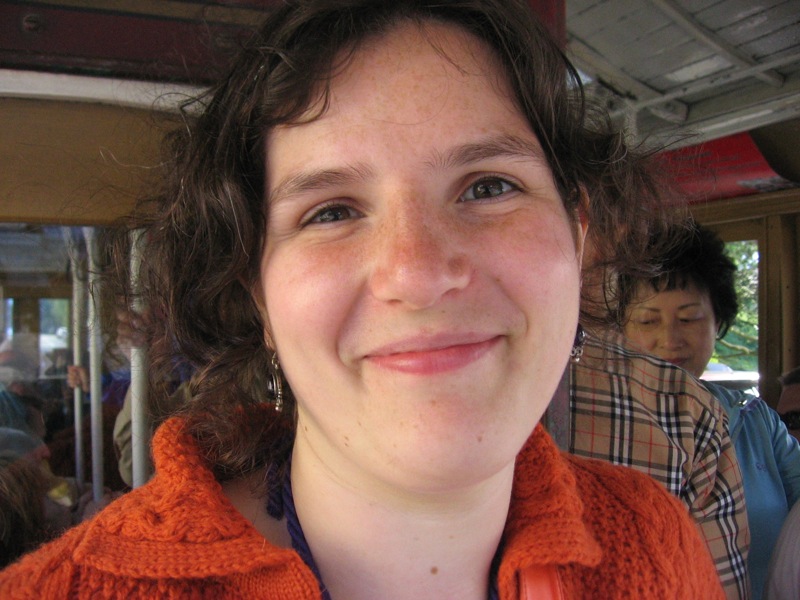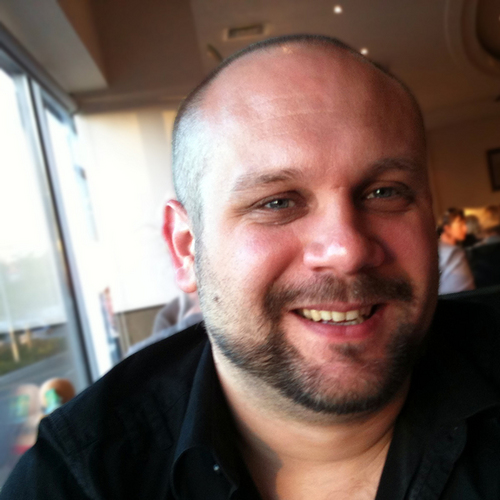
Institutional Web Management Workshop 2011:
Responding to Change
About this Page
This page provides biographical information for the plenary speakers, workshop facilitators, session chairs and event amplifiers.
In addition to the list given below the speakers and facilitators are also listed on Lanyrd.
Plenary Speakers
There were ten plenary speakers at the IWMW 2011 event. Note we aim to keep a record of gender balances at IWMW events in order to ensure that appropriate numbers of good female speakers and facilitators contribute to the event. At IWMW 2011 there were 8 male and 2 female plenary speakers.
Tom Franklin works for University of Manchester and Franklin Consulting. He is a learning technologist whose work has covered many areas including accessibility, Web 2.0, standards and activity data. He has written several influential reports including for JISC and for the Committee of Inquiry into the Changing Learner Experience. His work covers both the strategic and technical aspects of learning technology. He can be contacted on tom@franklin-consulting.co.uk
Tom gave a plenary talk on P3: Using activity data to support your users
Marieke Guy is a research officer in the Community and Outreach Team at UKOLN. She has co-chaired IWMW for the last 5 years.
Marieke is currently working on IMPACT an EU project which is improving access to text using OCR. In the past she has been involved in many JISC and cultural heritage projects from the technical (Good APIs, ePrints, Subject Portals), to the not-so-technical (Web 2.0 workshops for museums, libraries and archives) and the in-between (JISC PoWR, NOF-digitise and Ariadne).
Marieke continues to work from home and maintains a blog entitled Ramblings of a Remote Worker.
Marieke contributed to the P0: Opening of IWMW 2011 session and co-facilitated the B3: The Economical way to Amplify Your Event session.
Martin Hamilton is Head of Internet Services at Loughborough University in the UK.
Martin recently led the project to select a "cloud email" supplier for Loughborough and subsequently implement Google Apps for Education at Loughborough, including a groundbreaking service for alumni. Martin's current major project is my.Lboro, a Web 2.0 portal, which will incorporate a Mobile Web OSP site.
In his presentation at IWMW 2011 Martin will discuss this and other work that is being undertaken at Loughborough to embed Web 2.0 within the institution. This will range from techniques for exploiting institutional systems (e.g. through generation of RSS feeds) to use of external services such as Google Apps, Twitter, Facebook, Prezi and Animoto.
Martin blogs about his work at martinh.net.
Martin gave a plenary talk on P6: Embedding Web 2.0
David Hawking is Chief Scientist at the internet and enterprise search company Funnelback. Funnelback spun off from an Australian research organisation in 2005 and has a significant and growing focus in the UK. Funnelback search technology has won a number of awards and now supports hundreds of customers in Australia, Canada, New Zealand and the UK, mostly in government, higher education, and finance. UK higher education clients include LSE, City University and the University of Staffordshire.
David is also an adjunct professor at the Australian National University where he supervises a number of PhD students. He has authored around a hundred publications in the Information Retrieval area (see david-hawking.net). With colleagues he was responsible for the creation and distribution of text retrieval benchmark collections in widespread use around the world. He holds a PhD from ANU and an honorary doctorate from the University of Neuchâtel (Switzerland).
David gave a plenary talk on P4: Search Engines in the fight against Institutional Impecuniousness
Brian Kelly is UK Web Focus - a post funded by the JISC which provides advice and support to the UK Higher and Further Education communities and the museums, libraries and archives sector on Web issues. Brian is based at UKOLN.
Brian has been involved with Web development activities since he helped to establish a Web service at the University of Leeds in January 1993 - probably the first institutional Web service in the UK.
Brian's interests include Web standards, Web accessibility Web metrics and innovative Web developments. He has been involved with IWMW since he launched the event in 1997.
Brian contributed to the P0: Opening of IWMW 2011 and P9: Conclusions of IWMW 2011 sessions, co-facilitated the B3: The Economical way to Amplify Your Event parallel session and facilitated the A4: The Web Management Community: Beyond IWMW and JISCMail Lists parallel session.
Dave Raggett has been closely involved with the development of Web standards since 1992, contributing to work on HTML, HTTP, MathML, XForms, voice and multimodal interaction, ubiquitous web applications, financial data, privacy and identity. Dave is currently involved in several European FP7 research projects, including PrimeLife, webinos and Serenoa. In addition to work on standards, Dave is a keen programmer, and has developed experimental web browsers (e.g. Arena), a plugin for rendering math from natural language (EzMath), a tool for cleaning up HTML (Tidy), a web page library for HTML slide presentations (Slidy), a Firefox add-on for enhanced privacy (Privacy Dashboard), and most recently, work on real-time browser-based multi-user editing of HTML and XML. He was educated in England and obtained his doctorate from the University of Oxford, and is a visiting professor at the University of the West of England.
Dave gave a plenary talk on P7: Online Privacy
Ranjit Sidhu (or SiD) is founder of Statistics into Decisions (or SiD). Around 1998 Ranjit fell into the internet space whilst trying to run away from a career in law. Since then he has worked at several internet based companies, but has found his niche in analysis and helping clients understand what is going on in the internet ether and how to use that information to improve what they do.
Around 4 years ago he set up Statistics into Decisions (SiD), in Sydney - since then the company has, happily, found a market for its basic ethos on making information relevant and something that can be used so much so that it now works with many top blue chip companies as well as governmental clients both in the UK and Australia. SiD's second office is in Perth, Scotland.
Ranjit gave a plenary talk on P1: OK, we know what you do, so how much is it worth?
Amber Thomas is a Programme Manager in the JISC Digital Infrastructure Team. She currently works on the Open Educational Resources (OER) Programme, coordinating the IPR and technology support projects, and she oversees the work of Jorum. Her focus is on how learning and teaching materials can be supported by digital infrastructure, including repositories, tools, standards, metadata, rights management and sustainable services.
In previous roles she ran the WM-Share project, managed the Ferl service for FE, worked on the National Grid for Learning Portal, and over ten years ago she was assistant coordinator for the JISC information strategies initiative.
Amber gave a plenary talk on P2: Marketing and Other Dirty Words.
Paul Walk is Deputy Director at UKOLN. His interests are primarily around software and systems for the Web and he has more than ten years experience in Web-application and e-Learning systems development. His blog is http://blog.paulwalk.net.
Paul gave a plenary talk on P8: The Strategic Developer
Melius Weideman spent a number of years in the electronics and computer industry, before moving on to the academic world. His early research interest was in computer viruses, but since the birth of the Internet and search engines this interest gradually evolved into the visibility of websites to crawlers and their usability by humans.
He graduated with a Ph.D. in Information Science from UCT in 2001 and has published extensively – local and international conference papers, journal articles and on numerous other forums. He has delivered a number of international guest lectures at many leading universities, including in London, Al Ain, New York, Oxford and Frankfurt. In 2007 he was chosen from 41 international applicants to become the first Visiting Professor at the Munich University of Applied Sciences, where he lectured for three months. A university in Graz, Austria, invited him for a workshop series on Internet Marketing through Websites in 2008.
His interest has been on the "What" and "Why" of Search Engine Optimisation, which culminated in his first academic book, published by Chandos (Oxford, UK): "Website Visibility: The Theory and Practice of Improving Rankings". He was promoted from Associate to Full Professor at Cape Peninsula University of Technology (CPUT) in 2008, and has contributed to academic development on many fronts.
Melius loves spending time with his family, and has completed amongst other things a number of Karoo, Two Oceans and Comrades Marathons, as well as 18 Argus Cycle tours, four Double Centuries and 1.5 ABSA Cape Epic events.
Melius gave a plenary talk on P5: UK University Website Visibility - responding to the quirks of the crawler.
Workshop Facilitators
There are fifteen workshop facilitators at the IWMW 2011 event who are listed below. In addition Marieke Guy and Brian Kelly, who gave plenary talks, also facilitated workshop sessions.
There were 15 workshop facilitators at the IWMW 2011 event. Note we aim to keep a record of gender balances at IWMW events in order to ensure that appropriate numbers of good female speakers and facilitators contribute to the event. At IWMW 2011 there were 12 male and 3 female plenary speakers.
Thom Bunting is the Web Manager (eFramework and JISC IE Technical Foundations) in the Software and Systems team at UKOLN. In this role he researches and evaluates innovative content management technologies, including the recent integration of RDFa within Drupal versions 6 and 7. Previously his work has included extensive leading-edge web management experience, within commercial and academic contexts.
Thom facilitated the B6: Doing Drupal: quick start deployments via distributions parallel session.
Ben Butchart is a senior software engineer with 12 years experience of web and distributed application development in both commercial and academic (research) environments. For the last 2 years Ben has worked for EDINA, where he heads up a team of 15 software engineers delivering geo spatial services for the HE/FE community. Recently, Ben led the JISC 'Digimap mobile scoping' project, evaluating current trends and technologies relevant to delivering location based services with the Digimap platform.
Ben facilitated the B1: Augmented Reality on Smart Phones parallel session.
Jason Miles-Campbell joined JISC Legal in 2004 as the Service Manager. JISC Legal's role is to ensure that legal issues do not become a barrier to the development and adoption of new information and communication technologies in the UK further and higher education sectors. Jason's job is to efficiently allocate the Service's resources to the many demands on its expertise, to lead in terms of the Service's front line work, and to contribute to the development of its strategy.
Jason studied English Law and French Law at University College London in the dark and distant past. In 1994 he became a lecturer in law, specialising in European law, consumer law, and then IT law, and his ten years' experience in higher education included a stint as head of department. In 2004, he moved on to join JISC Legal, and has been assisting the further and higher education sectors in his current role since. In 2008, he added an LL.M. in IT and Telecoms Law from Strathclyde University to his qualifications.
Particular interests include copyright law (including the intricacies of open educational resources), access management legal issues, gadgets, travel, Girls Aloud, and haggis wontons (his culinary speciality).
Jason can be contacted by email on jason.miles-campbell@jisclegal.ac.uk and by twitter on jasonjisclegal.
Jason facilitated the A5: Your Top Ten Legal Issues To Be Thinking About Now parallel session.
Jon David is a web developer at Eduserv where he has worked on projects for NMSI (National Museum of Science and Industry), the Department for Education and the English RFU. He enjoys using ASP .Net, despite spending his university years learning Java, and is also a dab hand with XML and XSLT. When he is not working, Jon can be found at the gym, in the cinema or on a mountain somewhere with a snowboard.
Jon facilitated the A2: Working against the silo: practical ways to deliver engaging content parallel session.
Keith Doyle is a user experience architect. He has worked in education since 1994 at Manchester Adult Education, The Manchester College (as it is now), Manchester Metropolitan University (twice) and The University of Salford. He started working in the web in 1995, specialising in usability testing, usability and information architecture. Since going freelance in 2010, he has had assignments (as a third party) at the University of Lancaster, the University of Sheffield and Aviva.
You can contact Keith Doyle at Navopia User Experience on 01904 627120 or by email keith@navopia.co.uk.
Keith facilitated the B4: Developing Using Third Parties – is the tail wagging the dog? parallel session.
Chris Gutteridge is a Linked Open Data Architect and has been running the Web Systems for the School of Electronics and Computer Science at the University of Southampton, since 1997 and still isn't bored. He is also lead developer of the award winning EPrints repository software, used by hundreds of organisations. He strongly believes that tedious work should be done by computers, not people.
Chris faciliated the B5: Open data; a little goes a long way parallel session.
Matt Jukes is the Digital Manager for the Medical Research Council.
He held various roles at JISC over the course of almost seven years and also worked for the University of the West of England, the Economic and Social Research Council, HEFCE and Becta in a variety of web related roles. He also spent a year working for Jiva Technology, a start-up in Bristol as a Product Manager working on Beanbag Learning and Tutorhub.
Matt facilitated the A6: Birds of a Feather: The Others parallel session.
Paul Milne is the Web & Documentation Officer at EDINA, a JISC-funded data centre based at the University of Edinburgh, where he has worked since 1998.
Paul co-facilitated the A7: Listen, Repeat, Learn: How to use Social Media Conversations and Activities to Measure and Demonstrate Impact and Improve Engagement
George Munroe founded Platypus consultancy to offer advice on ICT strategy to encourage companies to embrace the latest in internet technology, both in software development and in connectivity. Last year he worked with Netskills to deliver a series of workshops focusing on maximising the effectiveness of online resources.
George facilitated the B7: Maximising Institutional Webmaster Impact parallel session.
Nicola Osborne is the Social Media Officer at Edina, a JISC National Data Centre based at the University of Edinburgh. EDINA provides digital resources for staff and students in further and higher education in the UK and beyond. This innovative role involves supporting and advising projects, services and colleagues across EDINA, including monitoring and reporting on social media activity.
Nicola regularly gives presentations on social media and is the author of "Amplification and Analysis of Academic Events Through Social Media: a Case Study of the 2009 Beyond the Repository Fringe Event" in "Higher Education Administration with Social Media: Including Applications in Student Affairs, Enrollment Management, Alumni Relations and Career Centres" edited by Charles Wankel & Laura Wankel (Emerald 2011). She is one of the organisers for the Repository Fringe unconferences and regularly blogs about social media and related events.
Nicola co-facilitated the A7: Listen, Repeat, Learn: How to use Social Media Conversations and Activities to Measure and Demonstrate Impact and Improve Engagement parallel session.
Addy Pope is a Content Officer for GoGeo based at EDINA at the University of Edinburgh. EDINA seeks to enhance the productivity, quality and cost-effectiveness of research and education in the UK and beyond. Addy is part of the GeoServices team at EDINA which provide access to spatial data through services such as Digimap, Unlock and UKBorders.
Addy has over 10 years of experience of working with spatial data and has worked in both the commercial and public sector. Most of this experiance has focused on the collection and processing of environemntal data for He became a GI scientist by accident while trying to be a glaciologist. You can follow Addy on twitter via @go_geo
Addfy facilitated the parallel session.
Richard Prowse is a graduate of the University of Leicester and now works as project team leader and web developer at Bournemouth University, delivering the university's new content management system and corporate website.
Richard is a creative technologist: passionate about higher education, web standards, user experience and technology. He was recently shortlisted for BU's Vice-Chancellor's Unsung Hero of the Year, 2011 for his contribution to the university's web development.
Richard facilitated the A1: Accessibility, Inclusiveness and the Mobile Web parallel session.
Jon Reay is an experienced digital thought leader, strategist and solution architect, currently heading up Aqueduct's Strategy department. He has led digital strategies for Aqueduct’s key clients over the last two years, including Lloyd’s of London, British Red Cross, Manchester City FC and ICAP plc. Jon, IT educated, has experience working with a range of web technologies, practices and software products to which he brings significant value to both IT and marketing strategies for clients. Jon has previously worked at Sapient and other worldwide agencies for IKEA, Orange, UK Cabinet Office and Tourism New Zealand.
A2: Working against the silo: practical ways to deliver engaging content parallel session.
Helen Setchell is Head of Web and New Media at the University of Reading and manages the University's Digital Development team. Her career in information systems began in the early 90s, and her first role in 'web stuff' in 1997. She has held web roles at Nottingham Trent University, the University of Nottingham and Bracknell Forest Council.
Helen holds a degree in Finance with a masters in Computing Systems. She is a qualified maths teacher, an experienced IT trainer, a Prince2 Practitioner, and ILM qualified. She has a professional interest in information design, usability, marketing and communications, strategy, and process.
In what spare time Helen has, she works with an unsigned band. This involves lots of 'digital stuff' and provides a playground for her creative geeky side.
Helen facilitated the B2: The 'Web cooperative parallel session.
Sharon Steeples started work in the Web and Learning Technology office at the University of Essex in 2001. Working as part of a team, her responsibilities included maintenance and development of the University corporate pages, Web site design, Web support and Web related training for staff.
Since 2008, Sharon has worked for the "Dark Side", (a.k.a. Management Information Systems) as a Web Analyst Programmer, and therefore has a unique perspective on the opportunities of MIS/Web team collaborative working. Her special interests are the Mobile Web, ASP.Net, and CSS. Sharon is addicted to gadgets and kittens, and was a professional London theatre director before settling down to her life in Essex. (Twitter: @sharonsteeples)
Sharon facilitated the A1: Accessibility, Inclusiveness and the Mobile Web parallel session.
Session Chairs
There were three session chairs at the IWMW 2011 event.
Mike McConnell, University of Aberdeen was the chair for the morning session on Improving Visability which was held on Wednesday 27 July from 09.00-10.30.
Mike Nolan, Edge Hill University was the chair for the afternoon session on Openness which was held on Wednesday 27 July from 13.30-15.00.
Marieke Guy, UKOLN, University of Bath was the chair for the morning session on Value of Web which was held on Tuesday 27 July from 10.30-11.30. See Marieke's bio.
Event Amplifier
There was an event amplifier at the IWMW 2011 event.
Kirsty Pitkin was the official event amplifier at the IWMW 2011 event. Kirsty blogs about her event amplification work on her Event Amplifier blog.
























